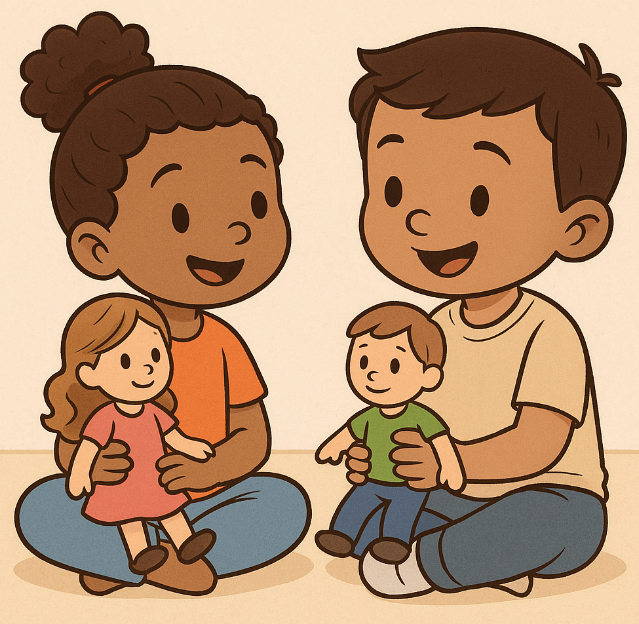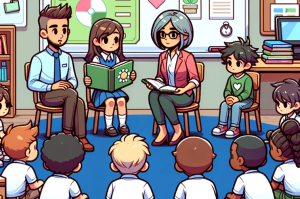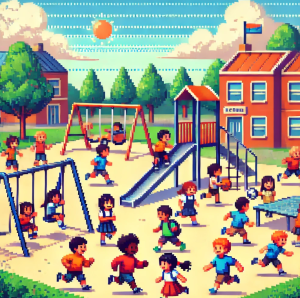
Play Heals: How Games Rebuild Childhood
A 10-year-old boy in Chile described his hometown in Venezuela with one chilling phrase: “pure gunfire.” For him and many other children forced to migrate by violence, play wasn’t just fun. It was a lifeline.
In a world where political unrest and neighborhood violence dominate the headlines, we often forget the quiet, everyday impact on children. Stress, displacement, and fear can rob kids of their most basic right: the right to play. However, new research suggests that play may be one of the most powerful tools available to help children heal, reconnect, and build resilience.
The Science Behind Play
Researchers from Chile, the U.S., and Europe worked with 23 migrant children—most from Venezuela and Peru—living in Santiago, Chile. Using play-based focus groups, drawing activities, and child-led “congresses,” the team asked kids how play shaped their recovery from trauma and what peace meant to them.
The findings? Children told two stories at once:
- Trauma and violence—kidnappings, poverty, discrimination, and unsafe journeys.
- Hope and resilience—friendship, laughter, trust, and new beginnings through play.
Play, the study found, wasn’t a distraction. It was therapy. It gave kids the language to talk about violence, the courage to imagine peace, and the comfort of belonging when everything else felt unsafe.
Why Play Matters for Mental Health
Children in the study spoke with striking clarity:
- “If we don’t play, we get sick.”
- “Play distracts the mind.”
- “It helps us forget the bad things.”
Science backs them up. Play activates joy, reduces stress, and teaches self-regulation. It’s the child’s natural coping mechanism—their way of turning overwhelming experiences into manageable stories. Even during long, perilous journeys, children invented games to keep fear at bay, such as counting cars or imagining landscapes.
This isn’t just child’s play. It’s emotional first aid.
Play Builds Friendship and Peace
Beyond mental health, play was also a bridge. Migrant children often faced bullying and discrimination in their new schools. Yet they consistently described play as the fastest path to belonging:
- Joining a game of spin-the-bottle with new classmates.
- Sharing handball during recess.
- Using Roblox or Free Fire to connect across cultures.
Through these games, kids found friends, built trust, and learned conflict resolution. In the children’s own words, “peace is making friends” and “solving problems by talking, not hitting.” That’s peace psychology in action, taught by children themselves.
What Schools and Parents Can Do
This research carries an urgent message: play is not optional—it’s essential.
Here’s how parents, teachers, and schools can act today:
- Protect recess. Resist the urge to cut playtime for more academics. It may be the most effective mental health intervention you have.
- Create safe play spaces. From playgrounds to digital platforms, ensure children can play without fear of bullying or exclusion.
- Use play in recovery. For kids facing trauma, structured games, art, and peer playgroups can support healing.
- Listen to children’s voices. As this study showed, kids are not passive victims. They’re experts in their own recovery—and play is often the key.
Why This Matters Now
Globally, millions of children are displaced by violence, conflict, and migration. Even in more stable school settings, stress, anxiety, and loneliness are rising.
This study reminds us that the smallest actions—letting kids kick a ball at recess, draw freely in art, or share laughter during a silly game—can have life-changing consequences.
When we protect the right to play, we’re not just giving kids joy. We’re giving them tools for resilience, belonging, and peace.
Let’s Talk About It
Your voice matters in shaping how schools and communities support children. Share your thoughts:
- What’s the biggest mental health challenge you see in schools today?
- How can schools better support students’ emotional well-being?
- What’s one school psychology insight that changed the way you parent or teach?
👉 Bottom line: Play isn’t a break from learning or healing. Play is the work of recovery. If we want children to thrive—even after trauma—we must protect their right to laugh, run, imagine, and play together.



